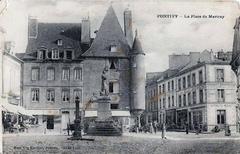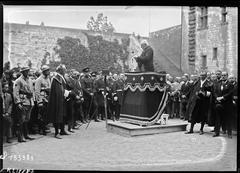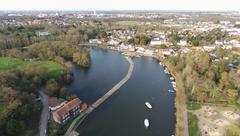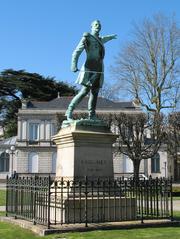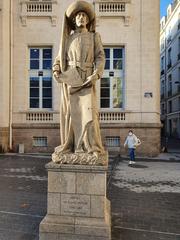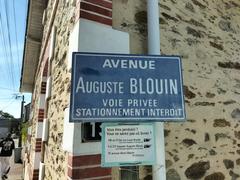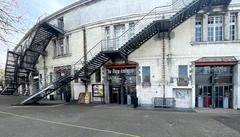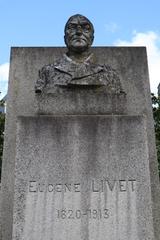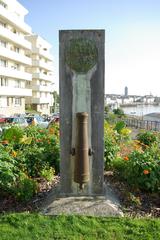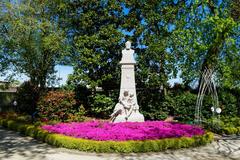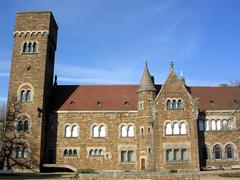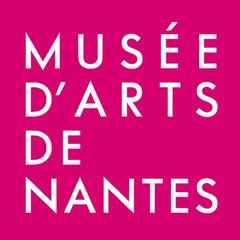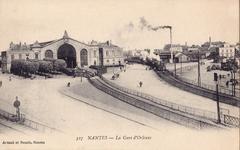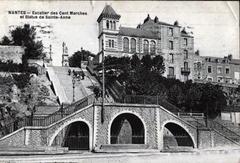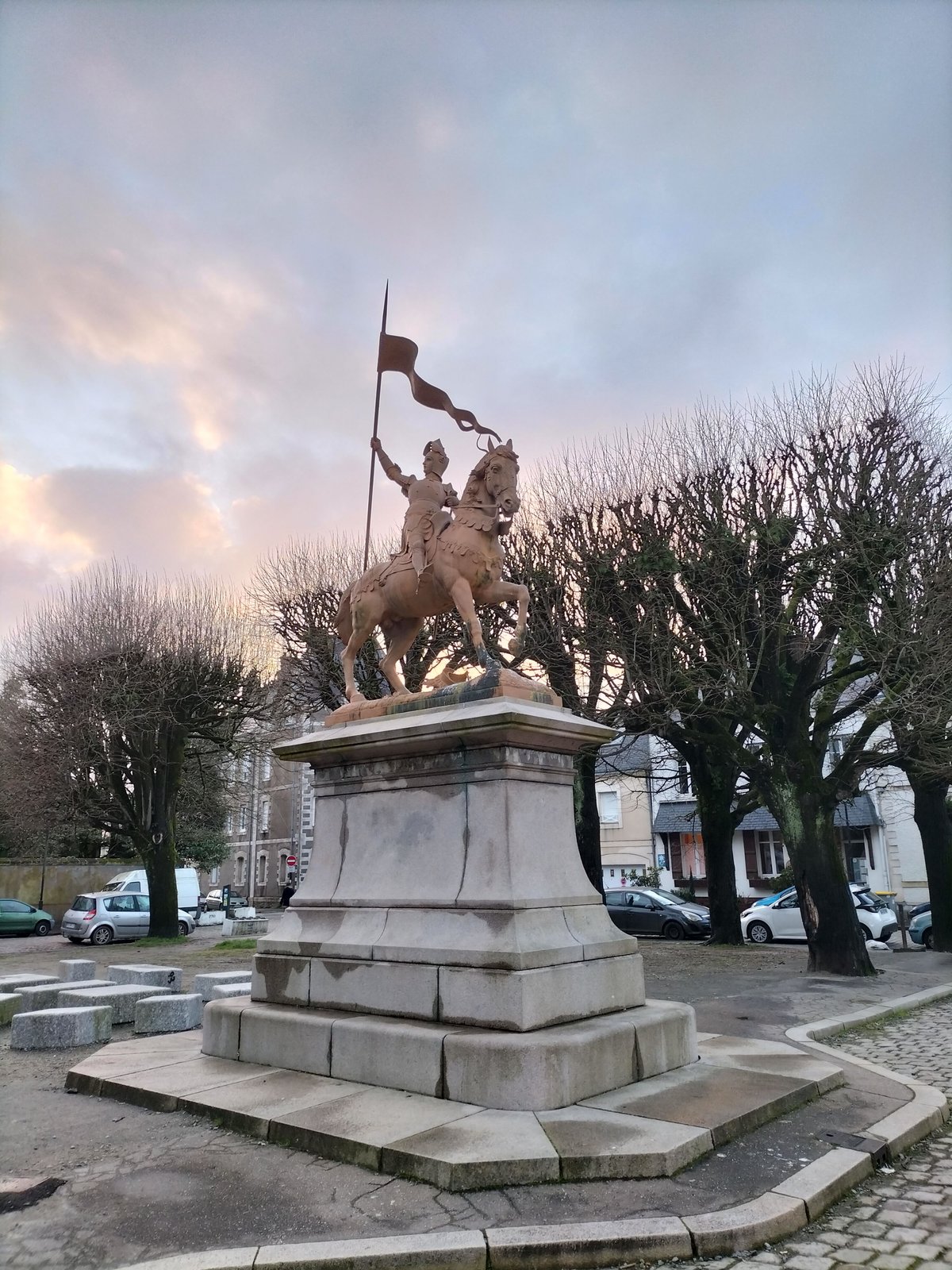
Equestrian Statue of Joan of Arc Nantes: Visiting Hours, Tickets, and Travel Guide
Date: 14/06/2025
Introduction: A Symbol of French Heritage in Nantes
The Equestrian Statue of Joan of Arc in Nantes stands as a powerful emblem of French history, national identity, and artistic tradition. Located in the heart of the city at Place Duchesse Anne, near the Château des Ducs de Bretagne, the monument immortalizes Joan of Arc—France’s legendary heroine whose leadership during the Hundred Years’ War continues to inspire generations. The statue, a replica rooted in Emmanuel Frémiet’s iconic 1874 design, not only celebrates Joan’s valor but also links Nantes to broader themes of resilience, faith, and national pride. This guide provides visitors with all essential information: from visiting hours and accessibility to the monument’s cultural significance and travel tips for exploring Nantes’ rich historical landscape (Official Nantes Tourism, Medieval Portland, France Today).
Contents
- Introduction
- Visiting Information: Hours, Accessibility, Tickets
- Historical Context and Significance
- Artistic Features and Symbolism
- Location and Getting There
- Best Times to Visit and Practical Tips
- Commemorative Events and Cultural Activities
- Nearby Attractions
- Frequently Asked Questions (FAQ)
- Visuals and Media Resources
- Additional Resources and Links
- Conclusion
Visiting Information: Hours, Accessibility, and Tickets
- Location: Place Duchesse Anne, 44000 Nantes, France—adjacent to the Château des Ducs de Bretagne and accessible from tram stop “Duchesse Anne – Château” (Line 1).
- Visiting Hours: Open 24/7; the statue is outdoors in a public square, allowing visitors to admire it any time of day.
- Admission & Tickets: No ticket is required; access is completely free.
- Accessibility: The area is fully wheelchair accessible, with paved walkways and ramps. Benches and shaded spots are provided for comfort.
- Guided Tours: Local operators and the Nantes tourism office offer guided walking tours that include the statue and other historical sites. Schedules and booking information are available on official sites.
- Photography: Photography is encouraged; daylight—especially early morning or late afternoon—offers the best lighting.
Historical Context and National Significance
Joan of Arc, born circa 1412 in Domrémy, was a peasant girl whose divine visions and unwavering faith led her to become a military leader during the Hundred Years’ War (Wikipedia). Joan’s pivotal role in lifting the siege of Orléans and enabling Charles VII’s coronation at Reims marked critical turning points in French history (France Today). Captured and executed in 1431, she was later exonerated and canonized in 1920, cementing her as a national and spiritual icon (Wikipedia).
While Joan did not fight in Nantes, the city’s historical significance as a stronghold in Brittany and its subsequent integration into the French kingdom make it a fitting location for her commemoration. The statue serves as a reminder of her enduring influence on French identity, unity, and the role of women in history (Joan Lives).
Artistic Features and Symbolism
Statue Composition
- Material: Bronze, crafted using the lost-wax method for fine detail.
- Design: Joan is depicted in full medieval armor, astride a dynamically posed warhorse and raising a pennant—symbolizing her divine mission and military leadership (Medieval Portland).
- Pedestal: The statue stands on a stone or marble base, often inscribed with dedications and quotations from Joan’s life.
- Artistic Origin: Modeled after Emmanuel Frémiet’s 1874 Parisian original; the model, Aimée Girod from Domrémy, links the work to Joan’s birthplace (Joan Lives).
Symbolism
Joan’s equestrian pose reflects her dual role as warrior and saint, embodying courage, conviction, and spiritual purpose. The statue’s placement near the Château des Ducs de Bretagne and Place Duchesse Anne—named after another influential female figure, Anne of Brittany—creates a dialogue between two icons of French history, highlighting evolving roles for women and the enduring relevance of their stories.
Location and Getting There
- Address: Place Duchesse Anne, 44000 Nantes, France.
- By Tram: “Duchesse Anne – Château” (Line 1) is the nearest tram stop.
- By Train: A five-minute walk from Nantes train station via Boulevard Stalingrad and Rue Stanislas Baudry.
- By Car: Parking available at Parking Château and Parking Gare Sud.
- By Foot/Bike: The statue is centrally located, making it easy to reach from all major city attractions.
Best Times to Visit and Practical Tips
- Season: Spring (April–June) and early autumn (September–October) provide mild weather and fewer crowds.
- Daylight Visits: Early morning and late afternoon offer optimal lighting for photography.
- Events: Annual festivals such as “Le Voyage à Nantes” (late June–August) and Joan of Arc Day (May 8th) offer special experiences, including guided tours and cultural activities (Mary Anne’s France).
- Amenities: The area is surrounded by cafés, restaurants, and public restrooms; informational plaques in French and English provide additional context.
- Souvenirs: Local shops offer Joan of Arc-themed memorabilia, from postcards to miniature statues.
Commemorative Events and Cultural Activities
- Joan of Arc Day (May 8): Commemorates the lifting of the Siege of Orléans; features wreath-laying, ceremonies, and performances.
- Feast Day (May 30): Religious processions and Masses are often held in the vicinity.
- Le Voyage à Nantes: Citywide art festival with the statue as a featured stop.
- Restoration Workshops: During restoration, the city organizes public sessions on monument conservation (Facts.net).
- Educational Tours: Schools and universities frequently incorporate the statue into their history and art programs.
Nearby Attractions
- Château des Ducs de Bretagne: Historic castle-museum exploring Nantes’ medieval and Renaissance past.
- Nantes Cathedral: A remarkable example of French Gothic architecture.
- Jardin des Plantes: Botanical garden with sculptures and contemporary art installations.
- Bouffay District: The lively, historic center with half-timbered houses, markets, and traditional cuisine.
- Les Machines de l’île: Artistic park blending history and innovation.
Frequently Asked Questions (FAQ)
Q: What are the visiting hours for the statue?
A: The statue is accessible 24/7, as it is situated in an open public square.
Q: Is there an admission fee?
A: No, visiting the statue is entirely free.
Q: Are guided tours available?
A: Yes, local tourism agencies and operators offer guided walking tours that include the statue.
Q: Is the site wheelchair accessible?
A: Yes, the square has paved paths and ramps.
Q: Are there events held at the statue?
A: Yes, including Joan of Arc Day, religious observances, and cultural festivals.
Q: Can I take photographs?
A: Photography is encouraged; the statue and its surroundings are popular for photos, especially during daylight.
Visuals and Media Resources
- Images: Look for high-resolution images labeled “Equestrian Statue of Joan of Arc Nantes visiting hours” or “Joan of Arc Nantes tickets” for accessibility and SEO.
- Virtual Tours: Available through the Official Nantes Tourism Website.
- Maps: Interactive maps help plan your visit and navigate nearby attractions.
Additional Resources and Links
- Joan of Arc: Wikipedia
- Joan of Arc Statue in Paris: Booster2Success
- Joan of Arc in French History: France Today
- Joan of Arc Statues: Joan Lives
- Joan of Arc’s National Symbolism: Sortir à Paris
- Visiting the Equestrian Statue of Joan of Arc in Nantes: Medieval Portland
- Facts about the Statue: Facts.net
- Events in Nantes: Mary Anne’s France
Conclusion
The Equestrian Statue of Joan of Arc in Nantes is more than a monument—it’s a living testament to courage, faith, and French national pride. Its central location, free access, and year-round availability make it a must-see for anyone exploring Nantes’ historical sites. Visitors can enrich their experience by taking guided tours, participating in cultural events, and discovering nearby attractions. For a deeper dive, utilize resources such as the Audiala app and local tourism platforms.
Plan your visit to experience firsthand the legacy of Joan of Arc and the vibrant heritage of Nantes. For continued exploration, see our related articles and follow us on social media for updates and event information.
Reliable Sources and Further Reading
- Joan of Arc Statue Nantes Visiting Hours and Guide to Nantes Historical Sites, 2025, Audiala
- Visiting the Equestrian Statue of Joan of Arc in Nantes: Hours, Tickets, and History, 2025, Medieval Portland
- Equestrian Statue of Joan of Arc in Nantes: Visiting Hours, Ticket Info, and Nearby Historical Sites, 2025, Mary Anne’s France
- Equestrian Statue of Joan of Arc in Nantes: Visiting Hours, Visitor Guide, and Cultural Insights, 2025, Facts.net
- Joan of Arc in French History, France Today, 2025
- Joan of Arc Statue in Paris: Booster2Success, 2025
- Joan of Arc: Wikipedia, 2025
- Joan of Arc’s National Symbolism: Sortir à Paris, 2025

